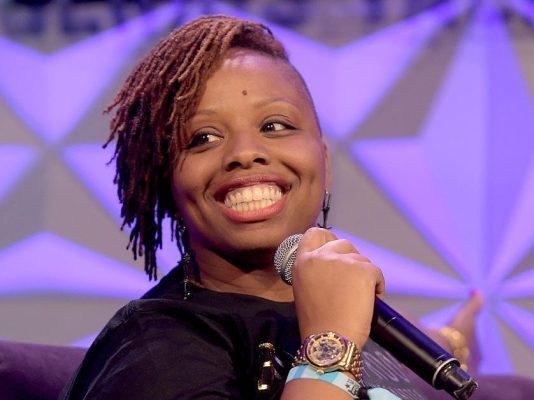In the last year, members of the government have accused the Black Lives Matter organization of being a terrorist organization, calling those associated with it “Black Identity Extremists.” An August FBI report, called “Black Identity Extremists Likely Motivated to Target Law Enforcement Officers,” broadly categorized black activists as a threat to national security.
Patrisse Cullors, a co-founder of Black Lives Matter, described it to TechCrunch as COINTELPRO 2.0. COINTELPRO was a federal surveillance program that targeted civil rights leaders like Rev. Martin Luther King, Jr. and members of the Black Panther Party. In the present day, methods of government surveillance can entail anything from social media monitoring to the gathering of location data.
“We take this really seriously, but we’ve seen this before,” Cullors told me. “The unfortunate reality is black folks during the 50s, 60s, 70s didn’t have social media. They didn’t have the advantage to know the FBI and CIA are spying on them. We are realizing it in real time.”
While reports like that are”deeply disturbing,” Cullors said, Black Lives Matter is in a time where its movement is alive and well. For example, LA’s Black Lives Matter chapter is currently taking on the district attorney, who has yet to prosecute a single officer for the murder of black residents.
“Our DA has not prosecuted one cop,” Cullors said. “Black Lives Matter LA is really holding our district attorney’s feet to the fire.”
Over in Toronto, the Black Lives Matter chapter recently won its fight to get cops permanently out of schools in the city. The Toronto District School Board launched a School Resource Officer program in 2008, which brought police officers into schools. Following criticism and calls to remove the police officers from Black Lives Matter and other activists, the school board voted late last month to end the program.
“We are in this movement moment where over 40 chapters across the globe are engaged in campaign activities, winning new policies for black people,” Cullors said. “Our decentralized, localized leadership structure has really allowed for Black Lives Matter structures in their own communities to take on the state and take on some of the most egregious acts against black people.”
Cullors said she is also pleased with the response of some black government officials. Cullors pointed to how Representative Karen Bass grilled Attorney General Jeff Sessions about the FBI report on “black identity extremists” during an oversight hearing before the House Judiciary Committee in November.
Next year, Cullors has plans to go on a book tour for her upcoming memoir, When They Call You a Terrorist, co-authored with asha bandele. Her goal with the book is for it to sell at least 250,000 copies in the first year and “reach as many folks as possible,” she said.
“This book is for young black girls around the world,” Cullors said. “Those of us who have lived through state violence and over-policing — for black girls who have witnessed family members die because of the war on drugs and incarceration. It’s my offering to this generation to tell another story about black activists and the experience we had as children.”
